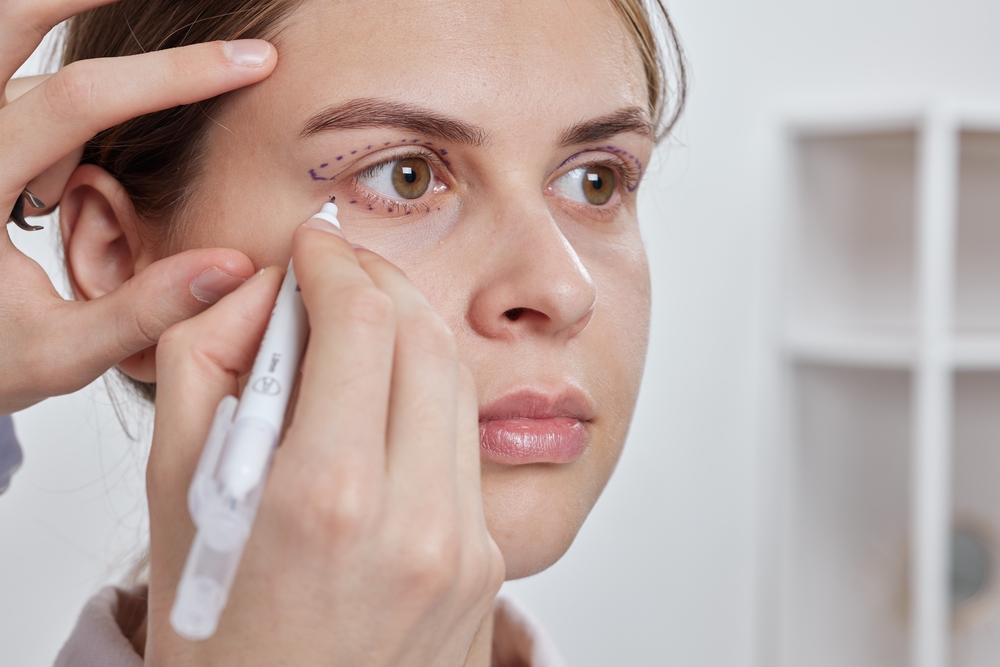Orbital and Eyelid Surgery
The orbital areas, sometimes called the eye sockets, are the parts of the face that surround the eyes. Together with the eyelids, the orbits protect the eyes and help keep them in place. If any of these structures become damaged, or if the eyelids naturally hang too low, you might suffer from obscured vision, nerve damage, muscle tears, and potentially permanent vision loss. At Pennsylvania Surgery and Laser Center, our team has a wealth of experience performing complex surgery for tear duct blockages, orbital floor fractures, tumors, drooping eyelids, and a number of other ocular disorders. If you’re experiencing pain or vision issues as a result of orbital or eyelid problems, schedule a consultation with our ophthalmologists in Philadelphia, PA to discover if surgery can provide the relief and clearer vision you desire.
How Does Orbital and Eyelid Surgery Work?
Each type of ocular surgery requires its own approach, which our team will review with you during your consultation. Some of the more common eye surgeries we perform at Pennsylvania Surgery and Laser Center are:

What Are the Benefits of Orbital and Eyelid Surgery?
Ocular problems can irritate the eyes, block your vision, and even cause blindness if left untreated. The team at Pennsylvania Surgery and Laser Center is committed to helping each of our patients enjoy the benefits of healthy vision with specialized techniques for even the most complex cases. The benefits of orbital and eyelid surgery at our Philadelphia, PA facility include:
- Improves the aesthetic appeal of the eyes
- Prevents complications associated with common eye injuries and disorders
- Relieves pain and pressure around the affected eye
- Provides clearer, unobstructed vision
Frequently Asked Questions
Are there different types of anesthesia options for orbital and eyelid surgery?
Yes, anesthesia options for orbital and eyelid surgery can vary depending on the extent of the procedure and your comfort level. Some surgeries can be done with local anesthesia and sedation, allowing you to be awake but relaxed during the procedure. More complex cases may require general anesthesia, where you’re fully asleep. Your surgeon will explain the anesthesia options in detail, taking into account any medical conditions or preferences you have to ensure you feel safe and comfortable.
How long does the orbital and eyelid surgery procedure typically take?
The length of the procedure can vary based on the complexity and extent of the surgery needed. A simple eyelid lift may take just an hour, while more involved orbital surgeries can take a few hours. Your surgeon will give you an estimate during your consultation, including details about pre-operative preparation and post-operative recovery time in the surgical facility. Understanding the timeline helps you plan your day and allows for an organized recovery afterward.
Will orbital and eyelid surgery affect my vision temporarily?
It’s normal to experience temporary blurred or reduced vision immediately following orbital and eyelid surgery due to swelling, ointments used during the procedure, or protective dressings. Most patients find their vision returns to normal within a few days, although it may take longer if there’s significant swelling. If vision changes persist beyond what your surgeon has described, it’s important to follow up promptly for assessment.

Experienced Care for Complex Cases
If you have recently suffered an injury to the face, or if you’re experiencing eye pain or irritation, you may require ocular surgery to restore the function of your eyes and prevent permanent damage. At Pennsylvania Surgery and Laser Center, our team can diagnose and treat a wide variety of common eye disorders and injuries to keep your sight healthy and clear. Schedule a consultation at our surgical center in Philadelphia, PA to learn more about how we can provide the relief you need.
Related Posts
How Long Does Upper Eyelid Surgery Last: What to Expect Over Time
Our Team 12/21/2024
Upper eyelid surgery, or blepharoplasty, removes excess skin and fat, creating a refreshed appearance with results that can last for years.
